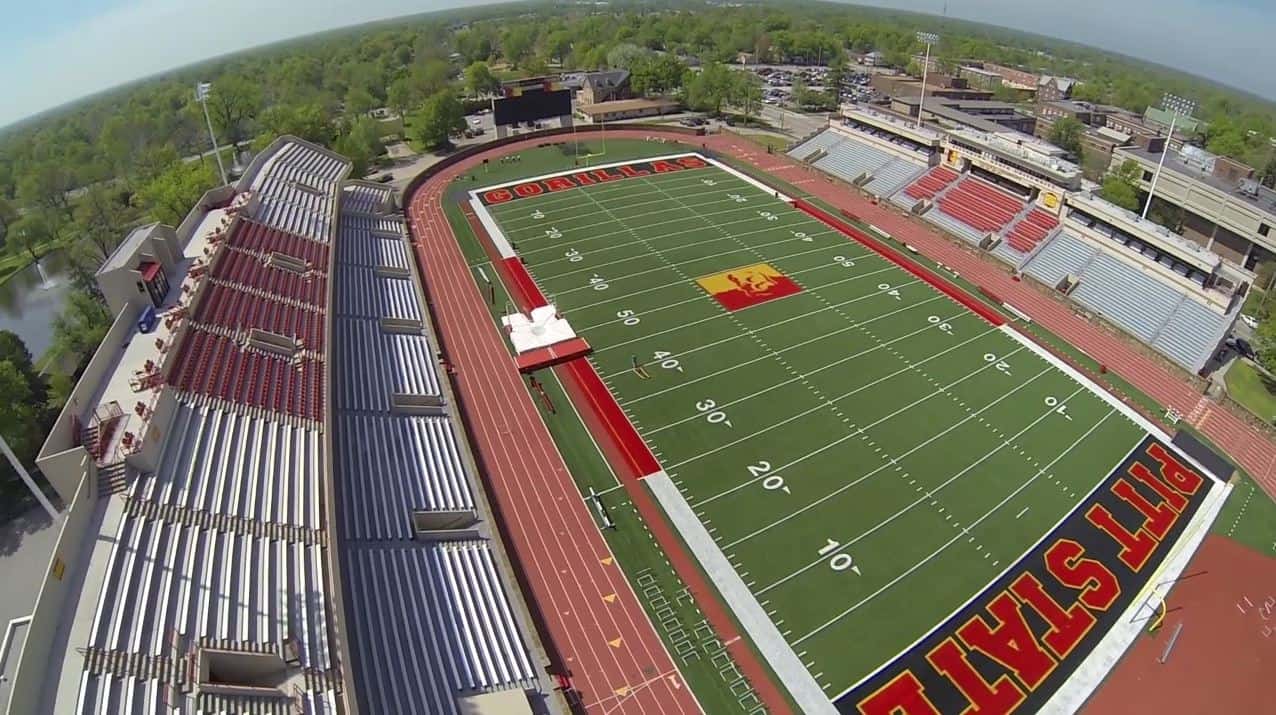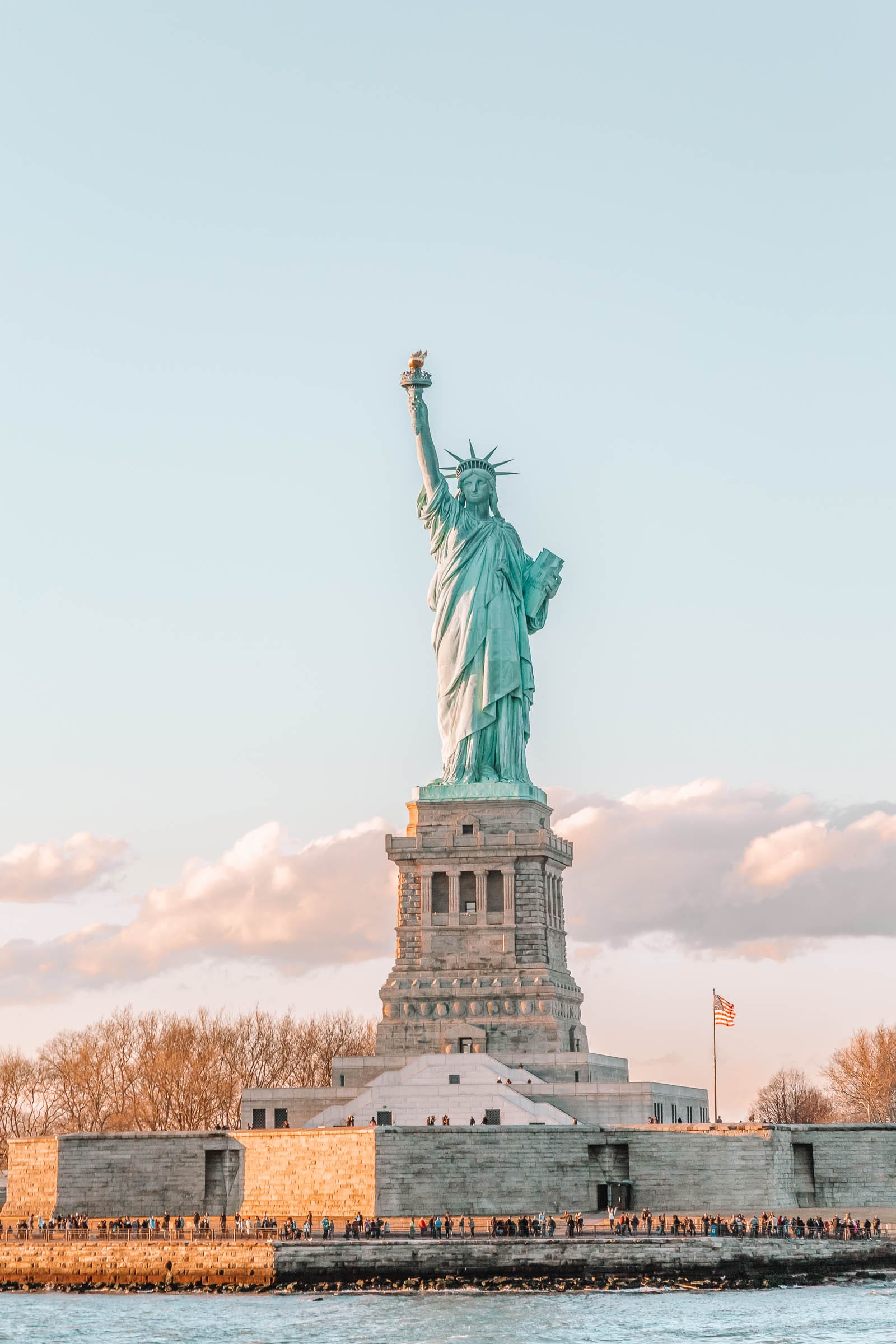Summary
- Crawford County Historical Museum
- Pittsburg Memorial Auditorium
- Downtown Pittsburg
- Little Balkans Days
- Pittsburg State University
- Carnie Smith Stadium
- Bicknell Family Center for the Arts
- Jaycee Ballpark
- Pittsburg Aquatic Center
- Pittsburg Farmers’ Market
- Miners’ Memorial
- Kiddieland Amusement Park
- Wilderness Park
- Mined Land Wildlife Area
- Kansas Crossing Casino
Located near the border with Missouri in the southeastern region of Kansas, Pittsburg is a city that developed around a coal mining camp established in the 1870s.
The surrounding landscape of Pittsburg reveals a history of extensive strip mining, which has resulted in various indentations that have transformed into narrow lakes surrounded by verdant ridges.
It is advisable to explore downtown Pittsburg, notable for its inviting array of shops, coffee houses, dining establishments, and cultural venues.
The city’s cultural and sporting landscape is further enhanced by Pittsburg State University, which features a robust football program and a state-of-the-art performing arts center that hosts major concerts, musicals, and theatrical productions.
1. Crawford County Historical Museum

With its compelling pioneer, mining, and bootlegging history, Crawford County’s past is undoubtedly captivating.
This can be appreciated at one of the largest local history museums in the area, which serves as a repository for an impressive collection of artifacts.
From the moment you arrive, the presence of the Marion Steamshovel, which functioned in the coalfields until 1953, indicates the museum’s significance.
Within, visitors can examine various mining artifacts, historical attire, farming tools, horse-drawn carriages, printing machinery, a 1906 Spanish cannon, and vintage automobiles, including a 1938 Peter Pirsch Aerial Fire Truck that served the city.
Visitors will also find a one-room schoolhouse from 1885 and a historic grocery store that once operated on Broadway in downtown Pittsburg.
2. Pittsburg Memorial Auditorium

Standing as a significant landmark in the downtown area, the Pittsburg Memorial Auditorium serves as a regional event venue, featuring a 1,500-capacity auditorium on the upper level and a versatile convention center below.
Exemplifying a rare Egyptian Revival architectural style, the facility was completed in 1925 as the temple for the Mirza Shriners. Within two decades, the city acquired the temple and transformed it into an event venue.
This location is particularly special for attending performances by touring recording artists, classical music concerts, ballet, musicals, comedy acts, theatrical productions, and much more.
3. Downtown Pittsburg

Similar to many downtown districts throughout the nation, Broadway and its intersecting streets are experiencing a revival.
The latest figures indicate that there are over 80 storefronts, catering to various shopping needs, whether one seeks clothing, antiquarian books, sporting equipment, jewelry, cosmetics, home decor, or flowers.
The dining options are equally impressive, ranging from crepes and breakfast fare to BBQ, pub food, Mexican cuisine, and classic American diner selections.
Pittsburg’s vibrant cultural scene is enriched by the Memorial Auditorium and the elegantly restored Colonial Fox Theater (1920). Additionally, the Pittsburg Artwalk, conducted in April and September, has significantly contributed to the local arts community.
4. Little Balkans Days

During the Labor Day weekend, Pittsburg celebrates its history and notable cultural diversity through a vibrant three-day festival.
The phrase “Little Balkans” dates back to the early 20th century, marked by an influx of immigrants from Europe’s Balkan region seeking employment in the local coalfields. The inaugural Little Balkan Days took place in 1985 and has become a cherished tradition.
From Saturday to Monday, the festivities abound with a parade, live entertainment, various contests and tournaments, a car show, an open day at the Crawford County Historical Museum, the Gorilla Century Bike Ride, cooking demonstrations, a reenactment battle, and numerous vendors.
5. Pittsburg State University

Enrolling approximately 7,500 students, Pittsburg State University (established in 1903) plays a significant role in the local community.
The 223-acre campus, located at the southern end of Pittsburg, is both aesthetically pleasing and easily navigable on foot or by bike. Particularly attractive is The Oval, a landscaped area shaded by trees and bordered by diverse architectural structures.
The university boasts a notable alumni network, including Pulitzer Prize-winning authors, renowned recording artists, and several NFL athletes who emerged from a successful football program.
The Pittsburg State Gorillas compete in NCAA Division II across ten sports, with Gus the Gorilla serving as their mascot since 1925. Additionally, the world-class Bicknell Family Center for the Arts will be highlighted later in this discussion.
6. Carnie Smith Stadium

In the realm of football, the Pittsburg State Gorillas are a formidable force, having achieved more victories than any other team in NCAA Division II history.
The Gorillas have secured four national championships and enjoyed a highly successful period under former head coach Chuck Broyles (1990-2009), during which the team won 13 conference titles within 20 seasons.
Their home ground, Carnie Smith Stadium (built in 1924), is regarded as one of the premier facilities in the division, accommodating nearly 12,000 spectators. Recent enhancements include the impressive Jungletron scoreboard, which was installed at a cost of $1.7 million.
7. Bicknell Family Center for the Arts

This stunning performing arts center was inaugurated on the Pittsburg State University campus in 2014.
The Bicknell Family Center for the Arts serves as a cultural hub for the entire region, featuring the 1,000-seat Linda & Lee Scott Performance Hall, a smaller 280-seat theater, a 3,000-square-foot gallery dedicated to fine arts, and a spacious rehearsal hall.
Typically, the performance schedule includes a Broadway musical (South Pacific at the time of this writing) alongside numerous national touring acts, locally produced plays, concerts, and various events.
The beautifully designed glass-fronted lobby is not only aesthetically appealing but also serves as a venue for receptions throughout the year.
8. Jaycee Ballpark

Residing on the west side of Lincoln Park is a historic baseball stadium constructed in the early 1940s, which continues to host approximately 300 games each year.
In its formative years, Jaycee Ballpark served as the home field for the Pittsburg Browns, a Class D affiliate of the St. Louis Browns (prior to their transition to the Baltimore Orioles).
The stadium accommodates 1,000 spectators and has recently undergone significant renovations, including the installation of synthetic turf, an updated canopy, a modern scoreboard, facade improvements, and enhanced lighting. The outcome is a delightful venue for enjoying America’s pastime.
9. Pittsburg Aquatic Center

The city’s remarkable public pool complex is located in the southeast corner of Lincoln Park, making it an ideal destination for families seeking respite from the summer heat in Pittsburg.
The facility features an expansive main pool with zero-depth entry, two exciting water slides, and two diving boards. Nearby, Bicknell Island offers a flume slide and a massive slide, along with a 300-foot lazy river that winds through these attractions.
For families with young children, a toddler pool is available, complete with fountains, a water playground, and a grassy play area.
Throughout the complex, lounge chairs and spacious green areas provide opportunities for parents to relax in both the sun and shade.
10. Pittsburg Farmers’ Market

Situated north of downtown, the Pittsburg Farmers’ Market features a permanent pavilion established in 2014. Visitors can come here on Saturday mornings (from mid-April through October) or Wednesday afternoons (from June through mid-August) to discover a selection of seasonal, locally sourced produce.
Additionally, an enticing array of farm-raised meats, honey, jams, preserves, baked goods, plants, and cut flowers is available, alongside handmade crafts and organic soaps.
Beyond being a place for quality ingredients and prepared foods, the Pittsburg Farmers’ Market offers a charming glimpse into local life, featuring special events such as Kids’ Day throughout the season.
11. Miners’ Memorial

Situated by the Municipal Court downtown, this poignant memorial honors the individuals who toiled in the Pittsburg-Weir coalfields.
The Miners’ Memorial, designed in a circular layout with plantings of shrubs, trees, and flowers at its center, features a larger-than-life bronze statue of a miner dressed in period-appropriate attire.
Nine polished black granite tablets encircle the statue, inscribed with the names of those who worked in the region’s mines over the years. A star next to a name signifies that the individual died while performing this hazardous profession.
12. Kiddieland Amusement Park
For families seeking activities for young children, a nostalgic amusement park established in Lincoln Park in 1953 is available.
The inaugural ride, a miniature train, is still a favorite today and accompanied by six additional attractions, including a spinner, a small ferris wheel, and one of the oldest roller coasters in Kansas, constructed in the 1950s and relocated to the park in the 1960s.
Kiddieland operates from Tuesday to Sunday, from June to mid-August, along with weekends in May, late August, and September.
13. Wilderness Park

Located to the north of Pittsburg, this expansive landscape, once marked by open pit mines, has been reclaimed by nature.
Wilderness Park was generously donated to the city by the Casaletto Family, featuring four miles of well-maintained trails for exploration, including a principal loop of 1.4 miles.
Most of these paths are ADA accessible. There are four former pits that now provide excellent fishing opportunities, although the abundance of standing water suggests that late summer visits should be avoided due to mosquito activity.
14. Mined Land Wildlife Area

West of Pittsburg lies a landscape characterized by over 1,000 narrow lakes, remnants of unregulated strip mining conducted from the late 19th century into the 1970s.
These lakes vary in size, ranging from a quarter acre to over 50 acres, and are encompassed by a wildlife area encompassing 46 tracts of land over 14,500 acres.
Approximately 200 of these lakes are managed for sport fishing, supporting over ten species, such as largemouth bass, walleye, bluegill, bullhead, and rainbow trout.
The terrestrial environment features diverse habitats, including native grasslands, wetlands, shrubby areas, and oak-hickory forests, providing opportunities for hunting, hiking, wildlife observation, camping, and mushroom/berry foraging.
15. Kansas Crossing Casino

This $80 million casino and hotel complex was inaugurated just south of Pittsburg in 2017. Kansas Crossing Casino pays homage to the area’s mining heritage, as evidenced by the large replica headframe at its entrance.
The casino features hundreds of slot machines and 14 lively game tables for roulette, blackjack, and craps.
Entertainment options include The Corral, a concert venue hosting renowned touring country artists (such as Deana Carter at the time of this writing), in addition to a full-service restaurant and a bar equipped with 11 big-screen televisions.




